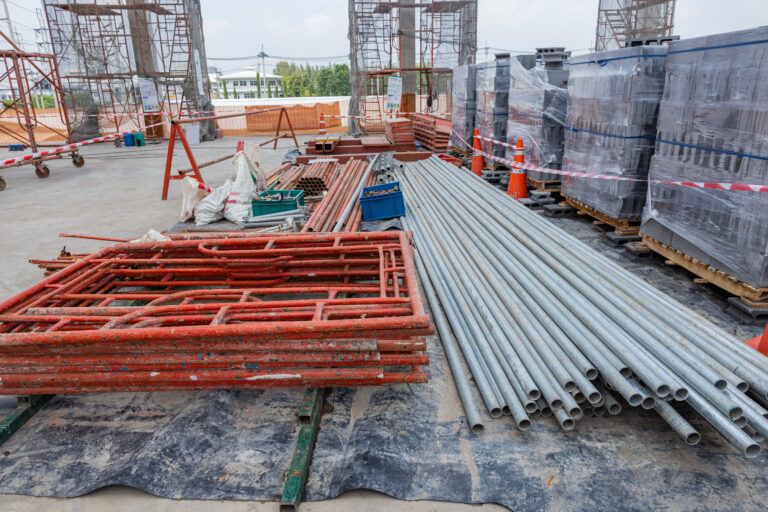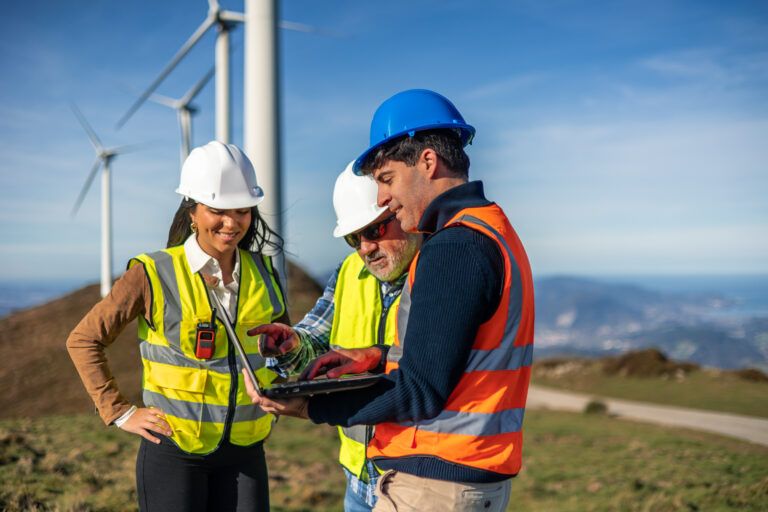Are you gearing up for a civil and structural engineering job interview? It’s an exciting field combining creativity with technical skills, and interviews can be critical to landing your dream job. Whether you’re a recent graduate or an experienced professional, knowing what questions might come your way is essential.
This article delves into common interview questions focusing on technical expertise, problem-solving, project management, and more. From understanding the basics of engineering principles to discussing your experience with cutting-edge software tools, we’ve got you covered. Plus, we’ll explore how you can showcase your passion for the field, motivation, and ability to work as part of a team.
So, whether you’re curious about the types of technical questions you might face or how to demonstrate your problem-solving prowess, keep reading for insights that could help you stand out in your next interview.
What Are Common Interview Questions for Civil and Structural Engineers?
When preparing for interviews in the fields of civil and structural engineering, you can anticipate facing a variety of questions designed to assess your technical competence, problem-solving abilities, and project management skills. These questions often aim to evaluate your understanding of fundamental engineering principles, your experience with design and construction projects, and your ability to communicate effectively and work collaboratively within a team.
Technical Expertise and Problem-Solving
1. Engineering Fundamentals: Expect questions on the basics of physics and mathematics, material science, and the principles of design and analysis. For instance, you might be asked to explain how you would calculate load distributions in a bridge or select materials for a particular construction environment.
2. Design and Analysis: Questions may delve into your experience with industry-standard software tools like AutoCAD, Revit, or SAP2000. Interviewers might ask you to describe a project where you applied these tools or to explain the steps involved in the analysis of a structural system.
3. Construction Methods and Materials: Understanding the practical aspects of construction is crucial. You could be asked about your familiarity with different construction techniques, the pros and cons of various building materials, and how you would address challenges encountered on-site.
Project Management and Team Collaboration
1. Project Experience: Be prepared to discuss specific projects you’ve worked on, highlighting your role, the challenges you faced, and how you overcame them. This not only demonstrates your technical knowledge but also your problem-solving skills and ability to drive a project to completion.
2. Teamwork and Communication: Civil and structural engineering projects typically require close collaboration with other professionals. Interviewers might ask about your experience working in multidisciplinary teams, how you handle conflicts, and your approach to communicating complex technical information to non-engineers.
3. Ethics and Professional Practice: Questions on this topic aim to assess your understanding of professional ethics and your commitment to ensuring the safety, health, and welfare of the public. You might be asked how you would handle ethical dilemmas or ensure compliance with codes and regulations.
Personal Attributes and Motivation
1. Motivation: Understanding your passion for the field and your career aspirations can be crucial for employers. Questions may explore why you chose civil or structural engineering, what you find most rewarding about the profession, and where you see your career heading.
2. Adaptability and Continuous Learning: Given the rapid advancements in technology and changes in regulatory standards, interviewers often look for candidates who are adaptable and committed to ongoing professional development. You might be asked about how you stay updated with industry trends or your involvement in professional engineering societies.
By preparing thoughtful, specific answers to these types of questions, you can demonstrate your qualifications, express your enthusiasm for the field, and stand out in the competitive landscape of civil and structural engineering careers.
How Can Candidates Prepare for Technical Questions?
To prepare effectively for civil and structural engineering interviews, focus on key technical areas. This targeted approach ensures a well-rounded strategy that aligns with both the demands of the role and your goals.
Review Fundamental Engineering Principles
Master the core principles of physics, mathematics, and materials science. This foundational knowledge is essential for all aspects of civil and structural engineering, from design to analysis.
Understand Project Management Basics
Gain insights into project management methodologies. This knowledge is vital for leading projects efficiently, ensuring they are completed on time, with high quality, and within budget.
Familiarise with Current Engineering Software
Achieve proficiency in engineering software such as AutoCAD, Revit, and SAP2000. These tools are integral for design, modelling, and analysis in the engineering profession.
Study Recent Engineering Case Studies
Examine contemporary case studies to understand real-world challenges and innovative solutions. This analysis broadens your understanding and showcases the practical application of engineering theories.
What Questions Test Your Practical Experience?
To assess your practical experience in civil and structural engineering, interviewers often pose questions that delve into past project involvement and hands-on problem-solving. Interviewers can thus gauge your ability to navigate the complexities of engineering projects, from conception through to completion, ensuring you possess necessary practical skills.
Describe a Challenging Project You Managed
Be prepared to describe a project where you faced significant challenges, emphasising your management strategies, problem-solving techniques, and successful outcomes. Highlight your role in navigating the project through complexities and delivering results that met or exceeded project goals.
Explain How You Ensure Compliance with Codes and Standards
Discuss your approach to staying updated with the latest engineering codes and standards, and describe specific instances where your knowledge ensured compliance in project designs. Emphasise your commitment to safety, quality, and regulatory adherence.
Discuss Your Experience with Sustainable Engineering Practices
Share examples of how you have incorporated sustainable and eco-friendly practices into your engineering projects. Focus on your efforts to minimise environmental impact, your use of sustainable materials, and any innovative solutions you implemented to address sustainability challenges.
Detail Your Involvement in Cost Estimation and Budget Management
Explain your methodology for accurate cost estimation and budget management in engineering projects. Describe a scenario where your financial oversight was critical to a project’s success, highlighting your skills in forecasting, resource allocation, and cost control.
How Do Interviewers Assess Problem-Solving Skills?
Interviewers assess your problem-solving skills by asking questions that require you to recount specific instances where you identified, analysed, and solved complex engineering problems. By evaluating these responses, interviewers can determine your capacity to navigate the multifaceted challenges inherent in civil and structural engineering projects.
Provide an Example of a Complex Problem You Solved
Illustrate your problem-solving skills by detailing a specific complex problem you encountered in your engineering work. Highlight the analytical methods you employed, the strategic decisions made, and the successful resolution achieved, showcasing your ability to navigate and solve engineering challenges effectively.
How Do You Prioritize Tasks in a Project with Tight Deadlines?
Explain your method for managing and prioritising tasks within projects that have tight deadlines. Discuss the importance of time management, resource allocation, and efficiency in ensuring project milestones are met without compromising on quality or safety.
Describe Your Approach to Risk Assessment and Mitigation
Detail your strategy for identifying potential risks in engineering projects and the steps taken to mitigate these risks. Emphasise your ability to foresee potential challenges, implement preventative measures, and adapt risk management plans to safeguard project outcomes.
What Questions Help Evaluate Your Teamwork and Communication Skills?
To evaluate your teamwork and communication skills, interviewers ask questions that delve into your experience collaborating and interacting with others. These questions aim to uncover your capacity for teamwork, leadership, and effective communication within the dynamic environments of civil and structural engineering projects.
Describe a Situation Where You Had to Resolve a Conflict Within Your Team
Share a detailed account of a time when you faced a conflict among team members. Highlight your communication strategies, the steps you took to understand different perspectives, and the resolution process that led to a cohesive team environment.
How Do You Communicate Technical Information to Non-Engineers?
Explain your approach to breaking down complex engineering concepts for audiences without a technical background. Discuss the methods and tools you use to ensure clarity, such as analogies, visual aids, or simplified explanations, to facilitate understanding.
Explain How You Have Led a Project Team Effectively
Describe your leadership style and provide examples of how you have guided a project team toward achieving project goals. Focus on your ability to motivate team members, manage resources efficiently, and maintain open lines of communication throughout the project lifecycle.
Share an Experience of Working with Interdisciplinary Teams
Discuss a project where you collaborated with professionals from different disciplines. Highlight how you bridged communication gaps, leveraged diverse skill sets, and fostered a collaborative work environment to achieve project objectives.
How Can You Demonstrate Your Passion for Civil and Structural Engineering?
Showcase your passion for civil and structural engineering by enthusiastically discussing recent trends or innovations in the field that excite you.
Discuss Recent Trends or Innovations in Engineering That Excite You
Highlight specific advancements or technologies in civil and structural engineering that have captured your interest. Discuss how these innovations could impact the future of the field and any implications they might have on project efficiency, sustainability, or design capabilities.
Share Personal Projects or Continuous Learning Efforts in Engineering
Detail any personal engineering projects you’ve undertaken or courses you’ve pursued to further your knowledge and skills. Emphasise your commitment to self-improvement and staying abreast of new techniques and technologies.
Explain How You Stay Updated with Engineering Advancements
Describe the methods you use to keep informed about the latest developments in civil and structural engineering. This could include subscribing to industry journals, attending webinars and conferences, or participating in online forums and discussion groups.
Describe Your Participation in Professional Engineering Societies
Share your involvement in engineering societies or professional organisations, including any active roles or contributions you’ve made. Highlight how this participation has helped you grow professionally and stay connected with the engineering community.
Ready to Engineer Your Future?
Throughout this guide, we’ve explored the core questions civil and structural engineers are likely to face in interviews, from technical deep dives and project management challenges to collaboration scenarios and personal motivation. Whether you’re preparing for your first interview or your next big opportunity, this preparation gives you the confidence to speak clearly about your experience and passion for engineering.
At Vista Projects, we know what it takes to thrive in this industry. With over 40 years of engineering excellence and a focus on integrated solutions across civil, structural, and system integration services, we bring clarity and precision to complex challenges.
If you’re ready to take the next step in your engineering journey, explore career opportunities with us or reach out to see how we can help build your future together.









